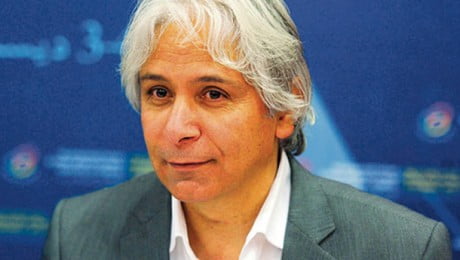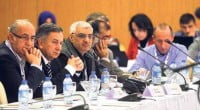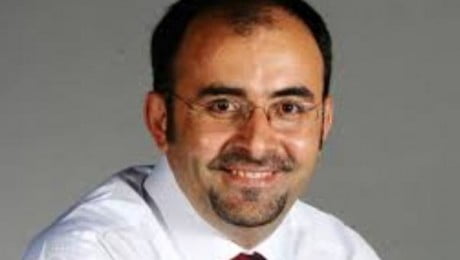Keyword: Turkey

Post-Kemalist but still illiberal Turkey
Many, including myself, expected that the defeat of Kemalism by a broad coalition of liberals, democrats and conservatives under the political leadership of the Justice and Development Party (AK Party) would lead to a democratic regime in Turkey with a liberal constitution. Yes, Kemalism is dead but its state-centric, Jacobin and illiberal sprit has been reincarnated in the ruling AK Party. The similarities in the attitude and the policies of the AK Party and its Kemalist predecessors are striking.

Middle East’s Struggle for Democracy: Going Beyond Headlines
Last month, when Hizmet representatives criticized the government-proposed legislation that calls for banning exam prep schools, Turkish and Western journalists labeled this opposition as a feud between Prime Minister Erdogan and Mr. Gulen because roughly 15-25 percent of these prep schools were founded by Hizmet participants according to various estimates. But that is an oversimplification.

EP says Erdoğan’s ‘treason’ accusation ‘totally unacceptable’
Two of the most senior politicians of the European Parliament (EP) have strongly criticized Prime Minister Recep Tayyip Erdoğan’s “treason” remarks against the Taraf daily and its reporter Mehmet Baransu, calling the prime minister’s comments unacceptable. Hannes Swoboda, the leader of the second-largest group in the EP, said he was “gravely concerned” by Erdoğan’s remarks and the subsequent cases filed against the daily and its reporter Baransu.

Turkish PM Erdoğan’s rhetoric and reality
One of the main problems that Turkish and foreign interlocutors of Turkish Prime Minister Recep Tayyip Erdoğan complain of is that he employs fiery rhetoric, with a special emphasis on drama, to score points with his home base of political Islamists, a narrow minority within his popular ruling Justice and Development Party (AK Party).

Alevi problems deeper than they seem, opinion leaders agree
On the first day of the 30th Abant Platform meeting on Friday on the Alevis issue in Turkey, Alevi and Sunni intellectuals and opinion leaders agreed that the problems date back to centuries ago and are more complicated than they seem. The event, titled “Searching for peace and a future together,” brought together representatives of various Alevi communities as well as Alevi and Sunni pundits, journalists and academics in an effort to have a comprehensive debate on one of the lingering problems of Turkish society.

Gülen movement-backed Abant Platform to discuss Alevi-Sunni ties
The Alevi issue is the key theme of this year’s Abant Platform, which started on Dec. 13 by way of the organization efforts of the Gülen Movement-affiliated Journalists and Writers Foundation (GYV). The three-day meeting which has gathered intellectuals from various ideological camps came at a time when tension between the government and the movement has become extremely visible in the eyes of the public due to the former’s plans of “transforming” the private “cram schools.”

Discrimination by AKP government [against Hizmet movement]
Discrimination by the Justice and Development Party (AKP) government, which argues that it has addressed this issue vis-à-vis religious people, has never been analyzed. The recent row between the AKP and the Hizmet movement refers to an important and interesting fact, because it reveals this reality. In light of these discussions, bureaucrats who have been discriminated by the AKP government because of their views are now talking.

Is the Hizmet movement resisting normalization?
Accusing the Hizmet movement, which insistently demands the fulfillment of the steps towards democratization which I referred to above and contributes to the process of change as evidenced by its stance in the referendum, of serving as a parallel structure indirectly means: “I will not change myself and introduce universal reforms. You have to live with this painful fact for the normalization of the country and take your steps accordingly.”

Gülen rejects labeling of Hizmet as ‘gang,’ calls it ‘traitorous’
Turkish Islamic scholar Fethullah Gülen has rejected the labeling of the Hizmet movement as a “gang,” saying those who uttered this word committed “traitorous” behavior. The term gang, “örgüt” in Turkish, has become a famous euphemism in Turkey to denote the terrorist Kurdistan Workers’ Party (PKK) and has a negative connotation.

Taraf, Baransu file criminal complaint against PM Erdoğan
The Taraf daily and journalist Mehmet Baransu have filed a criminal complaint against Prime Minister Recep Tayyip Erdoğan over charges of involvement in an “attempt to influence a fair trial,” slander and insult. The daily and Baransu also filed a TL 50,000 compensation case against PM Erdoğan for non-pecuniary damages.

Turkish PM Erdoğan’s way worries and puzzles
Erdoğan’s political calculations for his strategy do not seem to make much sense to many. Why has he chosen to alienate the Hizmet movement now and not after the elections? Why is he even more furious with the remaining independent media than before? Is he doing all this and others to win or is this a heavy gamble, in despair, to lose or win everything?

EU stresses right to freedom of expression in wake of media investigations [in Turkey]
The European Union has underlined that public authorities should not interfere with freedom of expression in the media, against the background of Turkish government pressure on the media through criminal and civil lawsuits. “The right to freedom of expression includes the freedom to receive and impart information and ideas without the interference of public authorities,” Peter Stano, spokesperson for EU Enlargement Commissioner Stefan Füle, said to the Cihan news agency.

How does PM Erdoğan hurt the liberal pious of Turkey?
Turkey has been vigorously debating the nature of its democracy and popular Prime Minister Recep Tayyip Erdoğan’s ruling style, which has increasingly authoritarian tendencies, as never before since the Gezi Park protests in May. From my perspective, the Gezi protests, on which everyone was almost forced to take sides, is a grey area since both the government and the protesters made their share of mistakes.



















